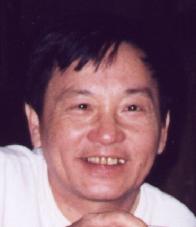
|
24.11.2016
NYRB Jan, 2000
DECEMBER 27
A Poem for the End of a Thousand Years:
W. H. Auden
We are about to enter the last year of the century and-I was going
to write-of a millennium, but who, in fact, has any sense of the year
999, or for that matter 1132 or 1412? This last century has been more than
enough for us to try to take in. So I found myself thinking about an appropriate
valediction to this last extraordinarily violent hundred years. Sixty
years ago this January, on the eve of the Second World War, the Irish poet
William Butler Yeats died. A younger English poet, W H. Auden, wrote an
elegy for him. It's become a very famous poem. A winter like this one. The
tenth year of an economic depression. Hitler's military, having annexed
Austria and the Sudetenland, is drawing up plans for the conquest of Europe.
And an Irish poet dies:
In Memory of W B. Yeats
(d. Jan 1939)
Robert Hass: Now & Then
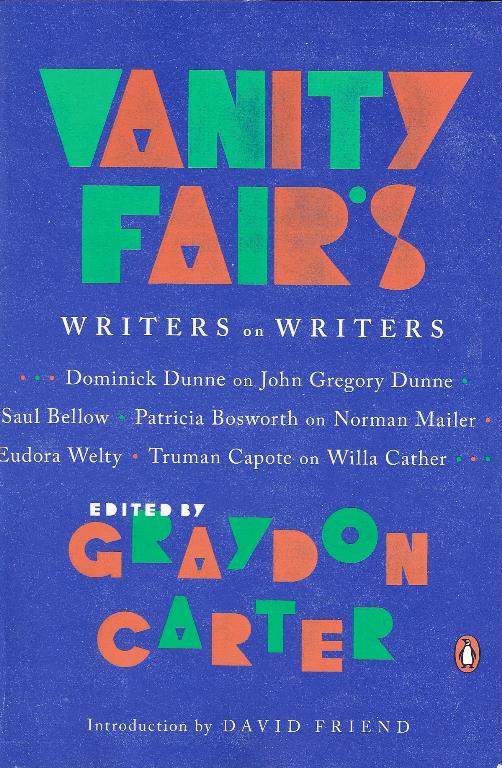
For poetry makes nothing happen:
it survives
Bởi là vì thơ đếch
làm cho cái chó gì xẩy ra: nó sống sót
W. H. Auden
A PASSION OF POETS
by Joseph Brodsky
"Time ... worships language and forgives
Everyone by whom it lives ... "
-W. H.AUDEN
I
…..
When a writer resorts to a language other than his mother tongue,
he does so either out of necessity, like Conrad, or because of burning
ambition, like Nabokov, or for the sake of greater estrangement, like
Beckett. Belonging to a different league, in the summer of 1977, in New
York, after living in this country for five years, I purchased in a small
typewriter shop on Sixth Avenue a portable "Lettera 22" and set out to
write (essays, translations, occasionally a poem) in English for a reason
that had very little to do with the above. My sole purpose then, as it
is now, was to find myself in closer proximity to the man whom I considered
the greatest mind of the twentieth century: Wystan Auden.
Khi nhà văn viết, bằng 1 thứ tiếng không phải
tiếng mẹ đẻ, người đó làm như vậy, thì là
do cần thiết, như Conrad, hay, vì một tham vọng nóng
bỏng, như Nabokov, hay, thèm 1 thứ gì ghẻ lạnh hơn, như
Beckett.
Không thưộc băng đảng này, vào mùa
hè năm 1977, ở Nữu Ước, sau khi sống ở Mẽo 5 năm, một bữa, tôi
buồn buồn mua 1 cái máy chữ nhỏ, và khởi sự viết,
bằng tiếng Anh, chỉ với mục đích độc nhất, để cảm thấy mình
gần gụi với người mà tôi nghĩ, cái đầu vĩ đại nhất
của thế kỷ 20: Wystan Auden
Note: Bài viết này, có in trong tập tiểu
luận của Brodsky, Cô Út đem làm từ thiện mất rồi.
Bài trên cuốn Vanity chỉ là trích đoạn.
II
….
If a poet has any obligation toward society, it is to write
well. Being in the minority, he has no other choice. Failing this duty,
he sinks into oblivion. Society, on the other hand, has no obligation
toward the poet. A majority by definition, society thinks of itself as
having other options than reading verses, no matter how well written.
Its failure to do so results in its sinking to that level of locution
by which society falls easy prey to a demagogue or a tyrant. This is
society's equivalent of oblivion; a tyrant, of course, may try to save
his society from it by some spectacular bloodbath.
Nếu nhà thơ có bổn phận với xã hội, thì
đó là, làm thơ hay.
Làm thơ dở như kít, thì đi chỗ khác
chơi!
[Brodsky lịch sự hơn, khi viết, không tròn bổn
phận này, thì chìm vào quyên lãng]
Thuộc thiểu số, hắn không có chọn lựa nào
khác.
Xã hội, về mặt nó, đếch có bổn phận
với nhà thơ. Thuộc đa số, nó có nhiều giải pháp
khác, thay vì đọc thơ, dù thơ hay.
http://tanvien.net/Dayly_Poems/Auden.html
Tưởng niệm Yeats
Nhà thơ biến mất vào
cái chết mùa đông
Những con suối đóng băng, những phi trường gần như bỏ
hoang
Và tuyết huỷ hoại những pho tượng công cộng
Thời tiết chìm vào trong miệng của ngày
chết
Ôi, tất cả những công cụ thì đều đồng ý
Ngày nhà thơ mất đi là một ngày lạnh
giá, âm u.
Thật xa sự bịnh hoạn của ông
Những con chó sói băng qua những khu rừng xanh
rờn
Con sông nơi quê mùa chẳng bị cám dỗ
bởi những bến cảng sang trọng
Bằng những giọng tiếc thương
Cái chết của thi sĩ được tách ra khỏi những bài
thơ của ông.
Nhưng với ông, thì
đây là buổi chiều cuối cùng, như chính ông
Một buổi chiều với những nữ y tá và những tiếng
xầm xì;
Những địa phận trong cơ thể ông nổi loạn
Những quảng trường trong tâm trí ông thì
trống rỗng
Sự im lặng xâm lăng vùng ngoại vi
Dòng cảm nghĩ của ông thất bại: ông trở thành
những người hâm mộ ông
Bây giờ thì ông
phân tán ra giữa hàng trăm đô thị
Với trọn một mớ cảm xúc khác thường;
Tìm hạnh phúc của ông ở trong một cảnh rừng
khác
Bị trừng phạt bởi một luật lệ ngoại về lương tâm.
Nhưng trong cái quan
trọng và tiếng ồn của ngày mai
Khi đám brokers gầm rú như những con thú
ở sàn Chứng Khoán,
Và những người nghèo đau khổ như đã từng
quen với đau khổ,
Và mỗi kẻ, trong thâm tâm của chính
kẻ đó, thì hầu như đều tin tưởng ở sự tự do của nhà
thơ;
Và chừng vài ngàn người sẽ nghĩ về ngày
này
Như 1 kẻ nghĩ về một ngày khi một kẻ nào đó
làm một điều không giống ai, khác lệ thường
Ôi, bao nhiêu công
cụ thì đều đồng ý
Ngày nhà thơ ra đi thì là một ngày
âm u, giá lạnh
II
Bạn thì cũng cà
chớn như chúng tớ: Tài năng thiên bẩm của bạn sẽ
sống sót điều đó, sau cùng;
Nào cao đường minh kính của những mụ giầu có, sự
hóa lão của cơ thể.
Chính bạn; Ái Nhĩ Lan khùng đâm bạn vào
thơ
Bây giờ thì Ái Nhĩ Lan có cơn khùng
của nó, và thời tiết của ẻn thì vưỡn thế
Bởi là vì thơ đếch làm cho cái chó
gì xẩy ra: nó sống sót
Ở trong thung lũng của điều nó nói, khi những tên
thừa hành sẽ chẳng bao giờ muốn lục lọi; nó xuôi về
nam,
Từ những trang trại riêng lẻ và những đau buồn bận rộn
Những thành phố nguyên sơ mà chúng ta tin
tưởng, và chết ở trong đó; nó sống sót,
Như một cách ở đời, một cái miệng.
III
Đất, nhận một vị khách
thật là bảnh
William Yeats bèn nằm yên nghỉ
Hãy để cho những con tầu Ái nhĩ lan nằm nghỉ
Cạn sạch thơ của nó
[Irish vessel, dòng kinh
nguyệt Ái nhĩ lan, theo nghĩa của Trăng Huyết của Minh Ngọc]
Thời gian vốn không khoan
dung
Đối với những con người can đảm và thơ ngây,
Và dửng dưng trong vòng một tuần lễ
Trước cõi trần xinh đẹp,
Thờ phụng ngôn ngữ và
tha thứ
Cho những ai kia, nhờ họ, mà nó sống;
Tha thứ sự hèn nhát và trí trá,
Để vinh quang của nó dưới chân chúng.
Thời gian với nó là
lời bào chữa lạ kỳ
Tha thứ cho Kipling và những quan điểm của ông ta
Và sẽ tha thứ cho… Gấu Cà Chớn
Tha thứ cho nó, vì nó viết bảnh quá!
Trong ác mộng của bóng
tối
Tất cả lũ chó Âu Châu sủa
Và những quốc gia đang sống, đợi,
Mỗi quốc gia bị cầm tù bởi sự thù hận của nó;
Nỗi ô nhục tinh thần
Lộ ra từ mỗi khuôn mặt
Và cả 1 biển thương hại nằm,
Bị khoá cứng, đông lạnh
Ở trong mỗi con mắt
Hãy đi thẳng, bạn thơ
ơi,
Tới tận cùng của đêm đen
Với giọng thơ không kìm kẹp của bạn
Vẫn năn nỉ chúng ta cùng tham dự cuộc chơi
Với cả 1 trại thơ
Làm 1 thứ rượu vang của trù eỏ
Hát sự không thành công của con người
Trong niềm hoan lạc chán chường
Trong sa mạc của con tim
Hãy để cho con suối chữa thương bắt đầu
Trong nhà tù của những ngày của anh ta
Hãy dạy con người tự do làm thế nào ca tụng.
February 1939
W.H. Auden
Cả 1 cõi thơ của Brodsky, là mặc
khải từ bài thơ trên, như David Remnick viết về ông
Cả 1 cõi "viết bằng tiếng Anh" của ông, là chỉ
để thân cận với Auden.
Cũng chỉ là 1 cách tản mạn bên ly cà phê
thôi mà!
Khi được hỏi ông nghĩ gì
về những năm tháng tù đầy, Brodsky nói cuối cùng
ông đã vui với nó. Ông vui với việc đi giầy ủng
và làm việc trong một nông trại tập thể, vui với chuyện
đào xới. Biết rằng mọi người suốt nước Nga hiện cũng đang đào
xới "cứt đái", ông cảm thấy cái gọi là tình
tự dân tộc, tình máu mủ. Ông không nói
giỡn. Buổi chiều ông có thời giờ ngồi làm những bài
thơ "xấu xa", và tự cho mình bị quyến rũ bởi "chủ nghĩa hình
thức trưởng giả" từ những thần tượng của ông. Hai đoạn thơ sau đây
của Auden đã làm ông "ngộ" ra:
Time that is intolerant
Of the brave and innocent,
And indifferent in a week
To a beautiful physique,
Worships language and forgives
Everyone by whom it lives;
Pardons cowardice, conceit,
Lays its honor at their feet.
Thời gian vốn không khoan
dung
Đối với những con người can đảm và thơ ngây,
Và dửng dưng trong vòng một tuần lễ
Trước cõi trần xinh đẹp,
Thờ phụng ngôn ngữ và
tha thứ
Cho những ai kia, nhờ họ, mà nó sống;
Tha thứ sự hèn nhát và trí trá,
Để vinh quang của nó dưới chân chúng.
Auden
Ông bị xúc động
không hẳn bởi cách mà Auden truyền đi sự khôn
ngoan - làm bật nó ra như trong dân ca - nhưng bởi
ngay chính sự khôn ngoan, ý nghĩa này: Ngôn
ngữ là trên hết, xa xưa lưu tồn dai dẳng hơn tất cả mọi điều
khác, ngay cả thời gian cũng phải cúi mình trước nó.
Brodsky coi đây là đề tài cơ bản, trấn ngự của thi
ca của ông, và là nguyên lý trung tâm
của thơ xuôi và sự giảng dạy của ông. Trong cõi
lưu đầy như thế đó, ông không thể tưởng tượng hai mươi
năm sau, khăn đóng, áo choàng, ông bước lên
bục cao nơi Hàn lâm viện Thụy-điển nhận giải Nobel văn chương,
nói về tính độc đáo của văn chương không như
một trò giải trí, một dụng cụ, mà là sự trang
trọng, bề thế xoáy vào tinh thần đạo đức của nhân
loại. Nếu tác phẩm của ông là một thông điệp
đơn giản, đó là điều ông học từ đoạn thơ của Auden:
"Sự chán chường, mỉa mai, dửng dưng mà văn chương bày
tỏ trước nhà nước, tự bản chất phải hiểu như là phản ứng
của cái thường hằng - cái vô cùng - chống lại
cái nhất thời, sự hữu hạn. Một cách ngắn gọn, một khi mà
nhà nước còn tự cho phép can dự vào những công
việc của văn chương, khi đó văn chương có quyền can thiệp vào
những vấn đề của nhà nước. Một hệ thống chính trị, như bất
cứ hệ thống nào nói chung, do định nghĩa, đều là một
hình thức của thời quá khứ muốn áp đặt chính
nó lên hiện tại, và nhiều khi luôn cả tương lai..."
Trước
khi rời nước Nga, Brodsky viết cho Bí thư Đảng Cộng-sản Liên-xô,
Leonid Brezhnev: "Tôi thật cay đắng mà phải rời bỏ nước Nga.
Tôi sinh ra tại đây, trưởng thành tại đây, và
tất cả những gì tôi có trong hồn tôi, tôi
đều nợ từ nó. Một khi không còn là một công
dân Xô-viết, tôi vẫn luôn luôn là
một thi sĩ Nga. Tôi tin rằng tôi sẽ trở về, thi sĩ luôn
luôn trở về, bằng xương thịt hoặc bằng máu huyết trên
trang giấy... Chúng ta cùng bị kết án bởi một điều:
cái chết. Tôi, người đang viết những dòng này
sẽ chết. Còn ông, người đọc chúng, cũng sẽ chết. Tác
phẩm, việc làm của chúng ta sẽ còn lại, tuy không
mãi mãi. Đó là lý do tại sao đừng ai
can thiệp kẻ khác khi kẻ đó đang làm công việc
của anh ta."
Chẳng có gì chứng tỏ Brezhnev đọc thư.
Cũng không có hồi âm.
Six
Poets Hardy to Larkin
W H. Auden
1907-1973
Wystan
Hugh Auden was born in York, brought up in Birmingham, where his
father was a physician, and educated at Gresham's School, Holt, and
Christ Church, Oxford. His student contemporaries included poets Cecil
Day Lewis, Louis MacNeice and Stephen Spender. After graduating in 1929,
he spent several months in Berlin, often in the company of Christopher
Isherwood, his future collaborator. His first book, Poems, was published
in 1930 by T. S. Eliot at Faber and Faber and he later became associated
with Rupert Doone's Group Theatre, for which he wrote several plays,
sometimes in collaboration with Isherwood. In January 1939 the two of
them left England for the United States, where Auden became a citizen
in 1946. His later works include The Age of Anxiety, Nones, The Shield
of Achilles and Homage to Clio, and he also wrote texts for works by Benjamin
Britten and (with Chester Kallman) the libretto for Stravinsky's opera
The Rake's Progress. Elected Professor of Poetry at Oxford in 1956, he
died in Vienna in 1973.
Nobody
in the thirties was quite sure what war would be like, whether there
would be gas, for instance, or aerial bombardment. There's a stock
and rather a silly question: 'Why was there no poetry written in the
Second World War?' One answer is that there was, but it was written
in the ten years before the war started.
Auden was a landscape poet, though of a rather particular kind. The
son of a doctor, he was born in York in 1907 but brought up in Solihull
in the heart of the industrial Midlands. Not the landscape of conventional
poetic inspiration but, for Auden, magical
20.11.2016
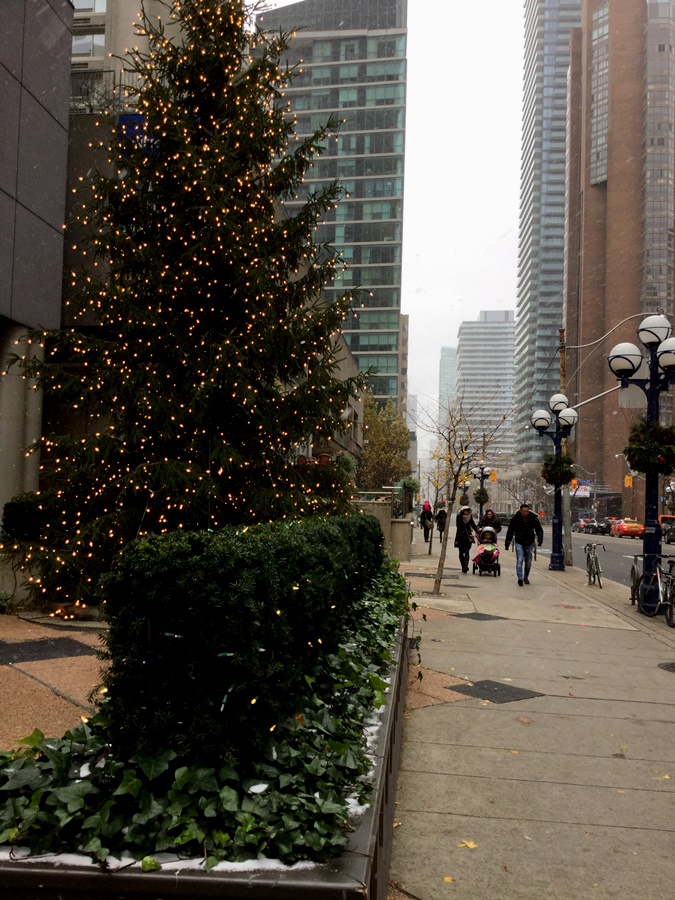

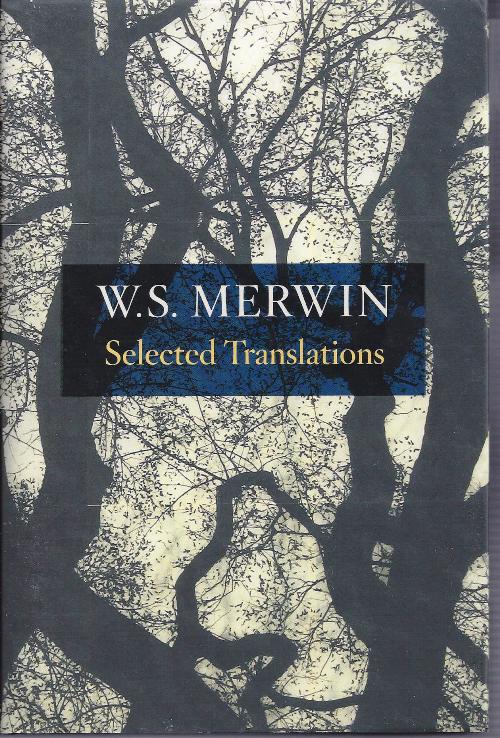
Ngo Chi Lan
Vietnamese
15th century
AUTUMN
Sky full
of autumn
earth like crystal
news arrives from a long way off following one wild goose.
The fragrance gone from the ten-foot lotus
by the Heavenly Well.
Beech leaves
fall through the night onto the cold river,
fireflies drift by the bamboo fence.
Summer clothes are too thin.
Suddenly the distant flute stops
and I stand a long time waiting.
Where is Paradise
so that I can mount the phoenix and fly there?
1968, translated with
Nguyen Ngoc Bich
THU
Trời
đầy thu
Đất như pha lê
Tin xa về theo cánh vịt giời
Hương sen bên Giếng Trời
Bèn bỏ đi
Lá sồi
Nhân đêm xuống
Bèn tuồn vô sông lạnh
Đom đóm lập loè nơi giậu tre
Aó hè mỏng quá
Bất thình lình tiếng sáo xa ngưng
Gấu đợi, đợi mãi, thèm nghe lại tiếng sáo
Thiên Đàng ở đâu?
Gấu gõ cửa và khóc ròng
Làm sao mà có được 1 em phượng hoàng
Trèo lên em và bay lên đó?
WINTER
Lighted
brazier
small silver pot
cup of Lofu wine to break the cold of the morning.
The snow
makes it feel colder inside the flimsy screens.
Wind lays morsels of frost on the icy pond.
Inside the curtains
inside her thoughts
a beautiful woman.
The cracks of doors and windows
all pasted over.
One shadowy wish to restore the spring world:
a plum blossom already open on the hill.
1968, translated with
Nguyen Ngoc Bich
SN_GCC_2016
14.11.2016
@ Home from school, 15.5.08
Thu
Toronto 2016, Oct, 16

259
Ba đấng bạn quí sống ở Xề Gòn ngày
nào, đêm qua khuya khoắt ghé thăm Gấu
Cả ba lạ sao cùng tên, bèn làm Gấu
nhớ tới bài thơ của Lý Bạch
"Uống Rượu Một Mình dưới Trăng"
Và Gấu bèn tếu táo làm bài
thơ sau đây:
Trăng tròn như cái chén
Đầy hồng đào
Đầy ba cái tên
Bèn tu một đường tối nay
https://chuyenbangquo.wordpress.com/
Lighting
the lantern
the yellow chrysanthemums
lose their color.
Đèn lồng thắp sáng
những đóa cúc vàng
phai màu
Note:
Theo GCC, dịch không đúng, không làm
bật ra được cái sự chuyển động của bức họa hai ku
Lighting, là danh động tự,
verbal noun.
Phải dịch là "cái
sự thắp sáng đèn
lồng", và chính cái sự thắp đèn này,
làm hoa "mất" màu, không phải "phai" màu,
theo nghĩa thường xẩy ra của hoa.
Hai hiện tượng, thắp đèn
và hoa mất màu "ăn dzơ" [en jeu] với nhau, và xẩy
ra, cái nọ trước cái kia, vẫn theo GCC.
Dịch như trên, chúng ta không thấy
được ảnh hưởng của
ánh sáng đèn lên màu của hoa.
Thường thường ánh sáng tôn cái
đẹp của hoa đẹp, người đẹp.
Bài hai ku cho thấy, ngược lại.
thắp lửa cho đèn lồng
ánh sáng làm những đóa cúc
vàng
bị lấn át sắc màu.
Cám ơn bác Tr. Hồi sáng dịch ba chớp
ba nhoáng để đi làm. Chiều về sửa.
You're welcome
Thơ trên
Tinvan http://www.tanvien.net/
Lighting the lantern
the yellow chrysanthemums
lose their color.
bác guc
dịch (theo ý của Mr.Tinvan):
Thắp đèn
lên
Cúc vàng
nhợt mặt
Thu
Toronto 2016, Oct, 16
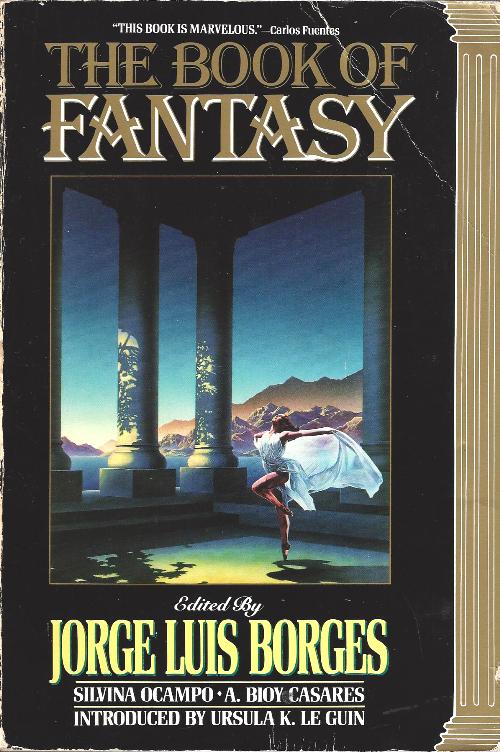
Vô tiệm sách cũ,
vớ được cuốn lạ, Borges biên tập. GCC chưa từng nghe tới cuốn
này! Kafka đóng góp hai truyện, Josephine và
Trước Pháp Luật. Trang Tử, Bướm mơ người hay người mơ bướm.
Một truyện trong cuốn sách.
Bolano có lần cũng khoe, như GCC khoe
vừa rồi.
Trong, có đến mấy truyện là từ Liêu
Trai.
Truyện sau đây, mà chẳng khủng sao?
Ending for a Ghost Story
I. A. Ireland, English savant born in
Hanley in 1871. He claimed descent from the infamous impostor William
H. Ireland, who had invented an ancestor, Wiliam Henrye Irlaunde,
to whom Shakespeare had allegedly bequeathed his manuscripts. He published
A Brief History
of Nightmares
(1899), Spanish Literature (1911),
The Tenth Book of Annals of
Tacitus, newly done into English (1911).
'HOW eerie!' said the girl, advancing
cautiously. And what a heavy door!' She touched it as she spoke and it suddenly
swung to with a click.
'Good Lord!' said the man, 'I don't believe there's
a handle inside. Why, you've locked us both in!' 'Not both of us.
Only one of us,' said the girl, and before his eyes she passed straight
through the door, and vanished.
Note: Truyện ngắn trên,
là từ “The Book of Fantasy”, do Borges biên
tập. Bạn đọc nó, song song với dòng thơ Apollinaire,
“Ouvrez-moi cette porte où je frappe en pleurant”, [“Hãy mở cánh
cửa này, Gấu đập và khóc ròng], và “BHD và GCC”
[A Rose and Milton], thì
mới đã!
Đoạn kết một Truyện Ma
I.A Ireland, một nhà bác
học Anh, sinh tại Hanley, năm 1871. Ông “bốc phét”,
là hậu duệ của tên lừa đảo tai tiếng, William Ireland,
ông này thì đã phịa ra 1 ông tổ,
Wiliam Henrye Irlaunde; Shakespeare đã từng truyền bản thảo cho
ông tổ này.
“Dễ sợ làm
sao”, cô gái nói, dò dẫm bước tới.
“Cái cửa nặng quá!”. Cô sờ vô
cánh cửa trong khi nói, và bất thình
lình, cái cửa chuyển động, cùng 1 tiếng "click".
“Trời ơi là Trời!” Cậu trai nói. “Tôi
không tin có quả đấm ở phía bên trong.
Thế là cô nhốt hai đứa rồi. Tại sao?”
“Đâu phải hai đứa. Chỉ anh thôi”.
Cô gái nói, cùng lúc,
biến mất, qua cánh cửa đóng.
The Man Who Did Not Believe in Miracles
Chu Fu Tze,
who didn't believe in miracles, died; his son-in-law was watching
over him. At dawn the coffin rose up of its own accord and hung noiselessly
in the air, two feet from the ground. The pious son-in-law was terrified.
'Oh venerable father-in-law,' he begged. 'Don't destroy my faith that
miracles are possible.' At that point the coffin descended slowly, and
the son-in-law regained his faith.
-HERBERT A. GILES
Chu Fu Tze không tin vào
phép lạ, chết. Ông con rể ngồi canh xác. Gần
sáng, cái hòm từ từ tự dâng lên
và lơ lửng ở trên không, không gây 1
tiếng động. Ông con rể sợ quá, năn nỉ, Bố ơi Bố, đừng
làm con tin là có phép lạ chứ. Bố cũng
đâu có tin vào mấy trò ma quỉ đó.
Hình như nghe ra, xác ông bố vợ trong chiếc áo
quan bèn từ từ hạ xuống, và ông con rể có lại
niềm tin của mình.
Guilty Eyes
Ah'med Ech Chiruani is a name from
a notebook, from a collection of folk tales. Nothing more is known
of him.
A man bought a girl for the
sum of four thousand denarii. Looking at her one day, he burst into tears.
The girl asked why he wept. He replied: 'Your eyes are so beautiful that
they make me forget to worship God.' Later, when she was alone, the girl
plucked out her eyes. 'Why do you so disfigure yourself? You have devalued
your own worth.' She replied: 'I would not wish any part of me to stop you
worshipping God.' That night, the man dreamed and heard a voice telling
him: 'The girl devalued herself in your eyes, but she increased her value
in ours and we have taken her from you.' When he awoke, he found four thousand
denarii under his pillow. The girl was dead.
THE BOOK OF FANTASY
The Encounter
A tale from the T'ang Dynasty (618-906
a.d.)
Ch'ienniang was the daughter
of Chang Yi, a public official in Hunan province. She had a cousin
named Wang Chu, an intelligent and handsome youth. The two cousins
had grown up together and, since Chang Yi both loved and approved of
the boy, he said he would accept Wang Chu as his son-in-law. Both the
young people heard and marked the promise; she was an only child and
spent all her time with her cousin; their love grew day by day. And
the day came when they were no longer children and their relations grew
intimate. Unfortunately, her father, Chang Yi, was the only person
around who did not notice. One day a young public official asked Chang
Yi for his daughter's hand. The father, heedless or forgetful of his
earlier promise, consented. Ch'ienniang, torn between love and filial
piety, nearly died of grief; the young man fell into such despair that
he resolved to leave the district rather than watch his mistress married
to another man. He invented some pretext or other and told his uncle that
he must go to the capital. When the uncle was unable to dissuade him, he
supplied the youth with funds along with some presents and offered him
a farewell banquet. In a desperate state, Wang Chu did not leave off moaning
throughout the feast and was more than ever determined to go away rather
than persist in a hopeless love affair. The youth embarked one afternoon;
he had sailed only a few miles when night fell. He ordered his sailor to
tie up so that they might rest. But Wang Chu could not fall asleep; some
time around midnight he heard footsteps approaching. He got up and called
out: 'Who is it, walking about at this hour of the night?' 'I, Ch'ienniang,'
came the reply. Surprised and overjoyed he brought her aboard. She told him
that she had hoped and expected to be his wife, that her father had been
unjust, and that she could not resign herself to their separation. She had
also feared that, finding himself alone in a strange land, he might have
been driven to suicide. And so she had defied general disapproval and parental
wrath and had now come to follow him wherever he might go. The happily
re-united pair thereupon continued the journey on to Szechwan. Five years
of happiness passed, and she bore Wang Chu two children. But there was
no news of Ch'ienniang's family and every day she thought of her father.
It was the only cloud in their happy sky. She did not know whether or not
her parents were still alive; and one night she confessed her anxiety to
Wang Chu. Because she was an only daughter she felt guilty of a grave filial
impiety. 'You have the heart of a good daughter and I will stand by you,'
Wang Chu told her. 'Five years have passed and they will no longer be angry
with us. Let us go home.' Ch 'icnniung rejoice .d and they made ready to
go back with their children.
When the ship reached their
native city, Wang Chu told Ch'ienniang: 'We cannot tell in what state of
mind we will find your parents. Let me go on alone to find out.' At sight
of the house, he could feel his heart pounding. Wang Chu saw his father-in-law,
knelt down, made his obeisance, and begged his pardon.
Chang Yi gazed upon him with
amazement and said: 'What are you talking about? For the past five
years, Ch'ienniang has been lying in bed, in a coma. She has not
gotten up once.'
'But I have told you the truth,'
said Wang Chu. 'She is well, and awaits us on board the ship.'
Chang Yi did not know what to think and sent two maids-in-waiting
to see Ch'ienniang. They found her seated aboard ship, beautifully
gowned and radiant; she asked them to convey her fondest greetings
to her parents. Struck with wonder, the maids-in-waiting returned to
the parental house, where Chang Yi's bewilderment increased. Meanwhile,
the sick girl had heard the news, and now seemed freed of her ill. There
was a new light in her eyes. She rose from her bed and dressed in front
of her mirror. Smiling and without a word, she made her way towards the
ship. At the same time, the girl on the ship began walking toward the
house. The two met on the river-bank. There they embraced and the two bodies
merged, so that only one Ch'ienniang remained, as youthful and lovely as
ever. Her parents were overjoyed, but they ordered the servants to keep
quiet, to avoid commentaries. For
more than forty years Wang Chu and Ch'ienniang lived together in happiness.
Eternal Life
James George Frazer British social anthropologist,
born in Glasgow in 1854, died in 1941. His major work is The Golden Bough
(1890-1915), He also wrote The Devil's Advocate: A Plea for Superstition
(1909) and Totemism and Exogamy (1910)
A fourth story, taken down near Oldenburg
in Holstein, tells of a jolly dam that ate and drank and lived right
merrily and had all that heart could desire, and she wished to live
always. For the first hundred years all went well, but after that she
began to shrink and shrivel up, till at last she could neither walk
nor stand nor eat nor drink. But die she could not. At first they fed
her as it she were a little child, but when she grew smaller and smaller
they put her in a glass bottle und hung her up in the church of St Mary,
at Lubeck. She is as small as a mouse, but one a year she stirs
GCC đã dịch mấy truyện ngắn
ma ở trong cuốn này, để lung tung, không làm sao kiếm
thấy nữa!
WAIT
FOR AN AUTUMN DAY
(FROM EKELOF)
Wait for an autumn day, for a slightly
weary sun, for dusty air,
a pale day's weather.
Wait for the maple's rough, brown
leaves,
etched like an old man's hands,
for chestnuts and acorns,
for an evening when you sit in the
garden
with a notebook and the bonfire's smoke contains
the heady taste of ungettable wisdom.
Wait for afternoons shorter than
an athlete's breath,
for a truce among the clouds,
for the silence of trees,
for the moment when you reach absolute
peace
and accept the thought that what you've lost
is gone for good.
Wait for the moment when you might
not
even miss those you loved
who are no more.
Wait for a bright, high day,
for an hour without doubt or pain.
Wait for an autumn day.
Adam Zagajewski: Eternal Enemies
Đợi một ngày thu
[Từ Ekelof]
Đợi một ngày thu, trời mền
mệt, oai oải,
không gian có tí bụi và
tiết trời thì nhợt nhạt
Đợi những chiếc lá phong mầu
nâu, cộc cằn, khắc khổ,
giống như những bàn tay của một người
già,
đợi hạt rẻ, hạt sồi, quả đấu
ngóng một buổi chiều, bạn
ngồi ngoài vuờn
với một cuốn sổ tay và khói từ
đống lửa bay lên
chứa trong nó những lời thánh
hiền bạn không thể nào với lại kịp.
Đợi những buổi chiều cụt thun lủn,
cụt hơn cả hơi thở của một gã điền kinh,
đợi tí hưu chiến giữa những đám
mây,
sự im lặng của cây cối,
đợi khoảnh khắc khi bạn đạt tới sự
bình an tuyệt tối,
và khi đó, bạn đành chấp
nhận,
điều bạn mất đi thì đã mất, một
cách tốt đẹp.
Đợi giây phút một khi
mà bạn chẳng thèm nhớ nhung
ngay cả những người thân yêu ,
đã chẳng còn nữa.
Đợi một ngày sáng,
cao
đợi một giờ đồng hồ chẳng hồ nghi, chẳng đau
đớn.
Đợi một ngày thu (2)
Thu
Toronto 2016, Oct, 16
The End Of Autumn
All of autumn, in the end, is nothing but a cold
infusion. Dead leaves of every sort steep in the rain. No fermentation,
no production of alcohol: we’ll have to wait until spring to judge
the effects of a cold compress on a wooden leg.
Sorting the ballots is a disorderly procedure.
All the doors of the polling place slam open and shut. Throw it
out! Throw it all out! Nature rips up her manuscripts, demolishes
her bookshelves furiously clubs down her last fruit.
Then she abruptly gets up from her work table.
She suddenly seems immense: hatless, head in the fog. Swinging
her arms, she rapturously breathes in the icy, intellectually clarifying
wind. Days are short, night falls fast; there’s no time for comedy.
The earth, in the stratosphere with the other
heavenly bodies, looks serious again. The lit up part is narrower,
encroached on by valleys of shadow. Its shoes, like tramp’s, soak
up water and make music.
In this frog-farm, this salubrious amphibiguity,
everything regains strength, leaps from stone to stone, changes
pasture. Streams proliferate.
This is what’s called a good clean-up, with no
respect for convention! Dressed or naked, soaked to the marrow.
And it doesn’t dry up right away, it goes on and
on. Three months of salutary reflection with no bathrobe, or loofah,
no vascular reaction. But its sturdy constitution resists.
So, when the little buds begin to jut out, they
know what they’re doing, what it’s all about. That’s why they
come out so cautiously, red-faced, benumbed, they know what lies
ahead.
But thereby hangs another tale, perhaps from the
black rule, though it smells different, I’ll now use to draw the
line under this one.
Translated from French by C.K. Williams in Francis
Ponge – Selected
Note: Bài thơ này, chôm trên
net. Tình cờ, thấy trong 1 số báo trên quầy
tại tiệm Indigo, TLS, số Mùa Xuân 2016 (?), cũng
có bài thơ này. Cũng có cái tên
End of Autumn, nhưng ngay câu đầu, là đã khác:
In the end autumn is nothing more than a cup of
tea gone cold.
Sau cùng thu chẳng còn gì,
nếu còn chăng, thì là 1 ly trà lạnh
ngắt
Bèn dùng ipod chôm, từ từ
GCC type, và dịch, song song với bài trên.
Chắc cũng nó.
Trên tờ Điểm Sách của Anh, số mới
nhất, có bài viết về Cuộc tình của Pasternak
với Lara, ở ngoài đời, và là cái mầm
đẻ ra tác phẩm "Bác Sĩ Zhivago".
Cuốn này, không chỉ Xịa, mà còn
có sự trợ giúp của Vatican, mới đưa lén vô được nước
Nga, qua những người đi du lịch.
Nhưng giá trị của nó, cực bảnh,
về mặt văn học, mặc dù tác giả của nó, gần
như phát điên lên: ông nghĩ, ông
được Nobel là nhờ thơ, và đúng ra phải như
thế, theo Milosz, trong bài viết về ông, có trích
đăng trên Tin Văn.
https://literaryreview.co.uk/behind-every-great-book
Boris Pasternak was a larger-than-life
character on the Soviet literary scene. Born at the beginning of
the 1890s into an artistic, successful family of assimilated Jews,
he was much admired by his peers as a poet but clearly fell into the
‘bourgeois’ category disdained by proletarian communists, all the more
so since the rest of his family emigrated after the Russian Revolution.
Stalin, however, thought it worth protecting the man he called a ‘cloud-dweller’.
In the mid-1930s, Pasternak decided to turn to prose, writing a big-canvas
novel set during the Revolution with a protagonist based to some extent
on himself and a love story at its heart. It was published two decades
later as Doctor Zhivago.
A naked chestnut tree that
I saw this afternoon on a walk in Zalla.
It
has been one of the wettest autumns I can remember. Everyday
it rains. I miss the sunlight. And nothing moves me more than
those sharp sunny days of autumn with a light full of contrast and
clarity. I am posting here The end of autumn by Francis Ponge. He
knew how to approach the things of this world, disecting them and opening
them up into new configurations, making us see things afresh:
The End Of Autumn
All of autumn, in the end,
is nothing but a cold infusion. Dead leaves of every sort steep in the
rain. No fermentation, no production of alcohol: we’ll have to wait
until spring to judge the effects of a cold compress on a wooden leg.
Sorting the ballots is a disorderly
procedure. All the doors of the polling place slam open and
shut. Throw it out! Throw it all out! Nature rips up her manuscripts,
demolishes her bookshelves furiously clubs down her last fruit.
Then she abruptly gets up
from her work table. She suddenly seems immense: hatless, head in
the fog. Swinging her arms, she rapturously breathes in the icy, intellectually
clarifying wind. Days are short, night falls fast; there’s
no time for comedy.
The earth, in the stratosphere
with the other heavenly bodies, looks serious again. The lit
up part is narrower, encroached on by valleys of shadow. Its shoes,
like tramp’s, soak up water and make music.
In this frog-farm, this salubrious
amphibiguity, everything regains strength, leaps from stone
to stone, changes pasture. Streams proliferate.
This is what’s called a good
clean-up, with no respect for convention! Dressed or naked,
soaked to the marrow.
And it doesn’t dry up right
away, it goes on and on. Three months of salutary reflection
with no bathrobe, or loofah, no vascular reaction. But its sturdy
constitution resists.
So, when the little buds begin
to jut out, they know what they’re doing, what it’s all about.
That’s why they come out so cautiously, red-faced, benumbed, they
know what lies ahead.
But thereby hangs another
tale, perhaps from the black rule, though it smells different, I’ll
now use to draw the line under this one.
Translated from French by
C.K. Williams in Francis Ponge – Selected
TREES LEAVING
It's so simple watching from the car
the way the leaves get wholly green again.
It's so easy waiting for the rain
that doesn't have to travel very far
to hit us up and bring its discontent
into a low-grade mid-spring afternoon
like Sunday traffic. I remember when
just walking under them was anguish. Then
a livid stem emerging, or a leaf,
was all it took to summon full-fledged grief.
I flowered also, I was full of torment
like spring trees leaving. That was my intent:
to keep it going, being different.
It was who I was and what I meant.
-Jonathan Galassi
NYRB, Oct 17
Thu Toronto 2016, Oct, 16
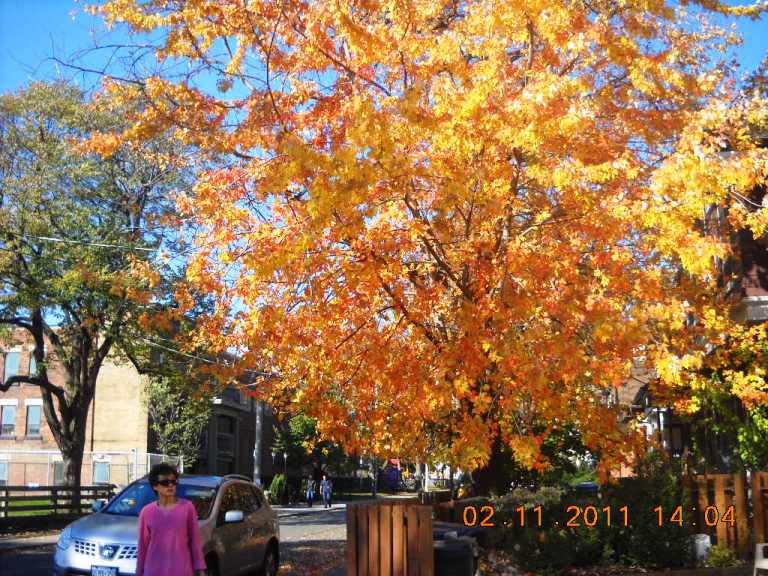
Ðường Lippincott, Toronto.
Căn nhà bên kia đường, phía trước
mặt, kế bên sân chơi của 1 ngôi trường,
là nơi tạm trú đầu tiên của vợ chồng Gấu.
Thu 2016
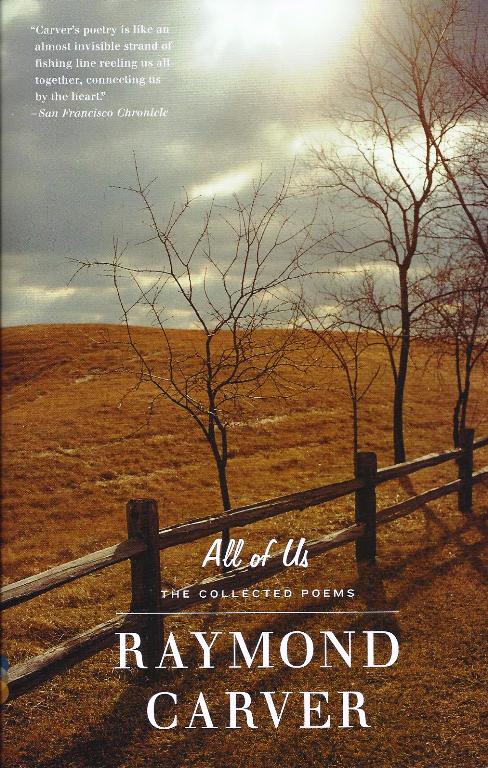
AUTUMN
This yardful of the landlord's
used cars
does not intrude. The landlord
himself, does not intrude. He hunches
all day over a swage,
or else is enveloped in the blue flame
of the arc-welding device.
He takes note of me though,
often stopping work to grin
and nod at me through the window. He even
apologizes for parking his logging gear
in my living room.
But we remain friends.
Slowly the days thin, and we
move together towards spring,
towards high water, the jack-salmon,
the sea-run cutthroat.
AUTOMNE
Ce jardin plein des voitures
usagées du proprio
ne me dérange pas. Le proprio
lui-même n'est pas dérangeant. II
reste courbé
toute la journée au-dessus d'un porte-pièces,
ou bien enveloppé par la flamme bleue
de la lampe à souder.
II fait attention à moi pourtant,
s'arrêtant souvent de travailler pour m'adresser
un sourire ou un signe de tête à
travers le carreau.
Il s'excuse
même d'avoir remisé sa tronconneuse
dans ma salle de séjour.
Mais nous restons amis.
Lentement les jours s'allongent, et nous
avancons ensemble vers le printernps,
vers la montée des eaux, le frai des saumons
et la truite anadrome.
Thu
Cái mảnh vườn để xe hơi phế
thải của vì chủ đất không làm phiền tớ
Chính xừ luý thì cũng
thế
Ông ta suốt ngày còng lưng trên
cái máy rập
Hay, lung linh mờ ảo,
Trong làn xanh xanh
Của tia lửa hàn
Tuy nhiên, có tí để ý
Những lần ngưng làm
Để ném cái cười
Hay gật cái đầu
Qua khung cửa sổ
Ông ta lại đi 1 đường xin lỗi nữa chứ
Về việc để bộ đồ nghề
Ở trong phòng khách của chúng
tôi
Nhưng chúng tôi là bạn.
Dần dà, ngày mỏng dần, trải dài
mãi ra
Và Xuân tới
Hai đứa chúng tôi bèn đi tới vùng
nước lớn
Câu cá hồi.
Hai chú hươu đuôi trắng ngắm cảnh thu lộng
lẫy dọc Skyline Drive, Virginia. Ảnh: dherman1145
Autumn Sky
In my great-grandmother's time,
All one needed was a broom
To get to see places
And give the geese a chase in the sky.
•
The stars know everything,
So we try to read their minds.
As distant as they are,
We choose to whisper in their presence.
•
Oh, Cynthia,
Take a clock that has lost its hands
For a ride.
Get me a room at Hotel Eternity
Where Time likes to stop now and then.
•
Come, lovers of dark corners,
The sky says,
And sit in one of my dark corners.
There are tasty little zeros
In the peanut dish tonight.
Charles Simic: New and Selected Poems 1962-2012
Trời Thu
Vào thời bà cố của tôi
Tất cả những gì một người cần
Là 1 cây chổi
Để kiếm chỗ
Và để đuổi
Vịt giời
Những ngôi sao biết hết, biết đủ thứ
Thế là chúng ta bèn cố đọc
Những cái đầu của chúng
Bởi là vì chúng ở quá
xa
Chúng ta chọn cách nói thì
thầm
Dưới sự chứng giám của họ
Ôi BHD của GCC
Hãy lấy cái đồng hồ mất mẹ mấy cây
kim
Làm cái chổi
Đi 1 đường tới Đà Lạt/Thiên Đàng
Lấy cái phòng ở Khách Sạn Thiên
Thu
Nơi Thời Gian thì bèn nghỉ chơi
Lúc này, hay, lúc khác
Hãy tới đây
Những cặp tình nhân của những góc
nhà, hay xó bếp
Bầu trời phán,
Và hãy ngồi, 1 trong những góc
tối của ta
Ở đó có những con số không nho
nhỏ, dễ thèm
Trong cái dĩa đậu phọng tối nay.
LATE SEPTEMBER
The mail truck goes down the
coast
Carrying a single letter.
At the end of a long pier
The bored seagull lifts a leg now and then
And forgets to put it down.
There is a menace in the air
Of tragedies in the making.
Last night you thought you heard
television
In the house next door.
You were sure it was some new
Horror they were reporting,
So you went out to find out.
Barefoot, wearing just shorts.
It was only the sea sounding weary
After so many lifetimes
Of pretending to be rushing off somewhere
And never getting anywhere.
This morning, it felt like Sunday.
The heavens did their part
By casting no shadow along the boardwalk
Or the row of vacant cottages,
Among them a small church
With a dozen gray tombstones huddled close
As if they, too, had the shivers.
Charles Simic: The Voice at 3:00 AM
Tháng Mười Muộn
Xe thư chạy xuống bờ biển
Với chỉ một lá thư
Ở cuối một bến tàu dài
Con hải âu chán đời, nhắc,
hết chân phải lại đến chân trái
Và quên bỏ xuống
Trong không khí có mùi
đe dọa
Về những bi kịch đang thành hình
Đêm qua bạn nghĩ bạn có
nghe tiếng TV
Từ nhà kế bên
Và bạn tin chắc
Về một ghê rợn mới
Họ đang báo cáo
Và thế là bạn bò ra đường để
kiếm
Chân trần, quần xà lỏn
Hóa ra chỉ là tiếng sóng biển
Ưu tư về không biết là bao nhiêu
là đời
Cứ phải giả đò, từ đâu đổ xuống nơi
đây
Và chẳng bao giờ đi bất cứ nơi đâu
Sáng nay, sao giống như
Chủ Nhật
Ông Giời cà chớn chắc là cũng
có góp phần
Trong cái việc, đếch đem một cái bóng
râm nào
Đổ xuống hai bên hè đường
Hay là ở rặng những cái lều trống
trơn
Trong số đó, là 1 ngôi nhà
thờ nhỏ
Với trên chục cái bia mộ bằng đá
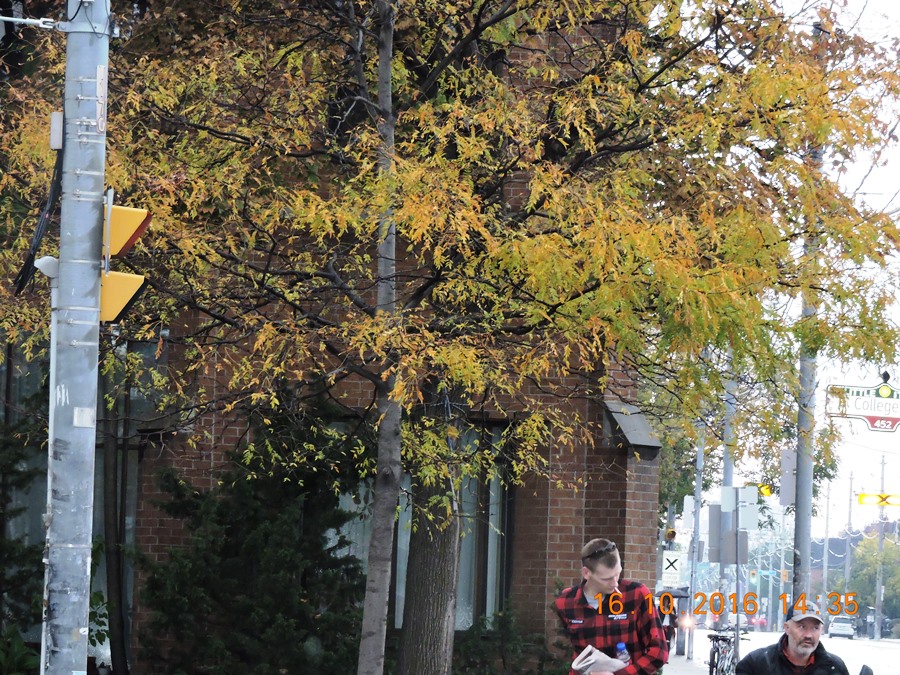
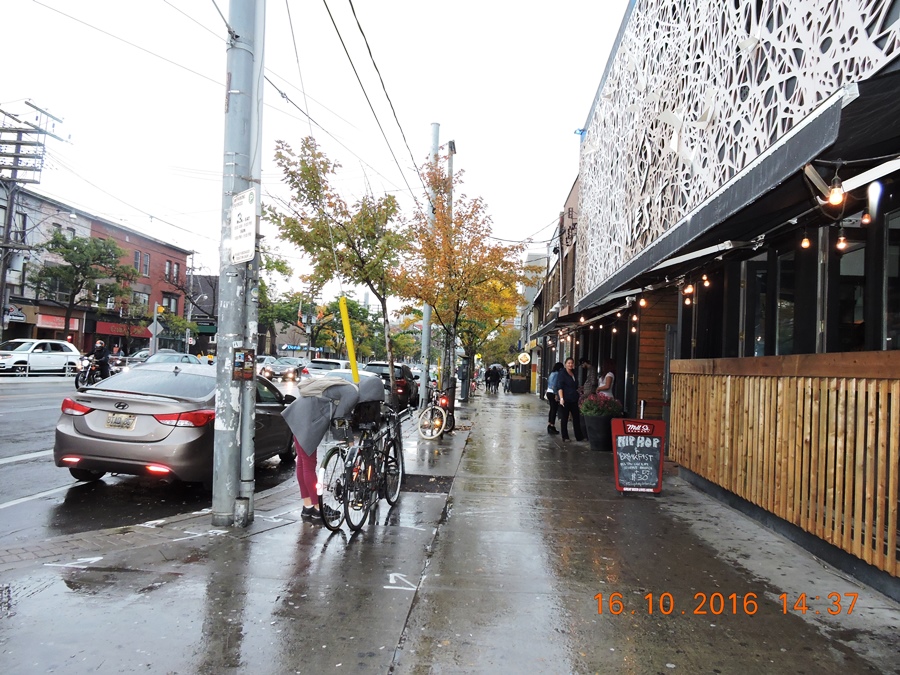
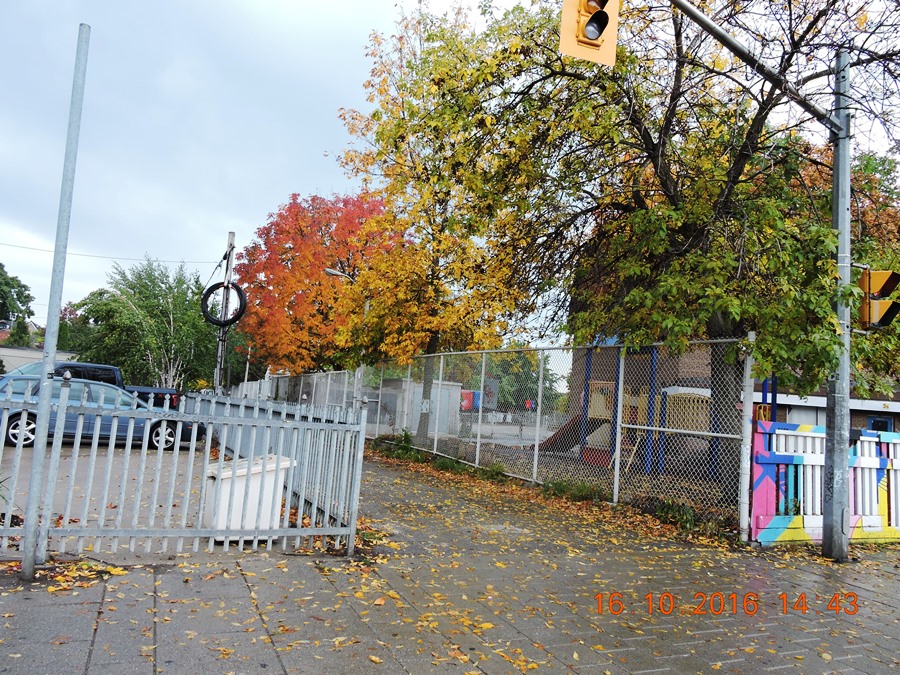
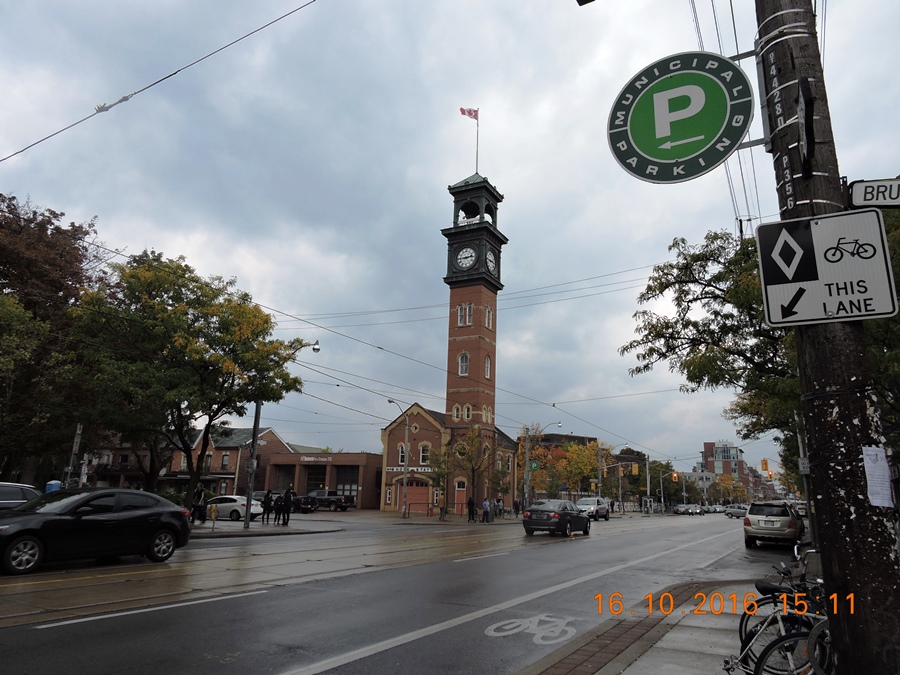
Đây
là con phố đầu tiên Gấu biết. Đường College, khu
Phố Tầu Tây, để phân biệt với khu Phố Tầu Đông, mà đa số
người Việt là người Bắc. Gấu quyến luyến với nó
như con voi già, và cái trung tâm
tạm cư, shelter, đầu tiên, ở trong 1 con đường giống như
1 con hẻm, ở đây, nơi gặp lại cô bạn của Cõi
Khác.
http://www.tanvien.net/tgtp_02/michael_ondaatje.html
Ðường Lippincott, Toronto.
Căn nhà bên kia đường, phía trước mặt,
kế bên sân chơi của 1 ngôi trường, là
nơi tạm trú đầu tiên của vợ chồng Gấu.
Gặp lại cô bạn ở đó.
Cô tháo bao tay, bắt tay Gấu tự nhiên như
người Hà Lội, nhưng Gấu lại nhớ đến cái lần cầm
tay đầu tiên, trong 1 rạp chớp bóng Xề Gòn,
khi “sắp sửa” đi lính, [trình diện Trung Tâm
Ba tuyển mộ nhập ngũ Quang Trung], được cô thương tình
nhận lời đi ciné…
Thế là run lên
như… con thằn lằn đứt đuôi
[hình ảnh này chôm của Kiệt, trong Một Chủ Nhật Khác, của TTT, khi
chàng lên cơn sốt, chạy dưới mưa, vô Bưu
Ðiện Ðà Lạt, đánh cái điện cầu cứu
cô học trò Oanh, SOS, SOS!...].
Gấu Cái giận run lên…
Hà, hà!
Căn nhà thuộc 1 cơ sở
từ thiện, chuyên lo tiếp nhận người tị nạn. Có
lần, cũng đã lâu lắm, Gấu có ghé,
đứng bên ngoài nhìn vô, thấy thấp thoáng
mấy người tị nạn vùng Ðông Âu có
thể, tính vô gạ chuyện tào lao, hoặc nếu có
thể đi lên lầu, vô căn phòng ngày nào
chứa vợ chồng Gấu, đúng vào 1 đêm cực lạnh,
sờ vô cái ống sưởi rất xưa, nhưng ngại sao đó,
bèn bỏ đi.
Con phố nhỏ, ăn ra, phía trước mặt
người đàn bà trong hình, con phố College,
một phố chính của downtown Toronto. Có tiệm sách
cũ mà Gấu vẫn thường ghé, từ những ngày đầu
tới thành phố, 1994.
|
